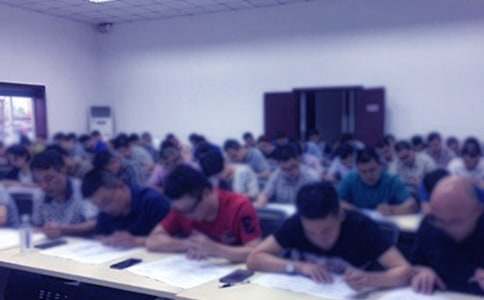2016年公共英语一级考试精读阅读练习题
以下是小编整理的2016年公共英语一级精读阅读练习题,希望可以帮助到各位考生备考。

2016年公共英语一级精读阅读练习题(1)
preface
Science is a dominant theme in our culture. Since it touches almost every facet of our life, educated people need at least some acquaintance with its structure and operation. They should also have an understanding of the subculture in which scientists live and the kinds of people they are. An understanding of general characteristics of science as well as specific scientific concepts is easier to attain if one knows something about the things that excite and frustrate the scientist.
This book is written for the intelligent student or lay person whose acquaintance with science is superficial; for the person who has been presented with science as a musty storehouse of dried facts; for the person who sees the chief objective of science as the production of gadgets; and for the person who views the scientists as some sort of magician. The book can be used to supplement a course in any science, to accompany any course that attempts to give an understanding of the modern world, or - independently of any course - simply to provide a better understanding of science. We hope this book will lead readers to a broader perspective on scientific attitudes and a more realistic view of what science is, who scientists are, and what they do. It will give them an awareness and understanding of the relationship between science and our culture and an appreciation of the roles science may play in our culture. In addition, readers may learn to appreciate the relationship between scientific views and some of the values and philosophies that are pervasive in our culture.
We have tried to present in this book an accurate and up-to-date picture of the scientific community and the people who populate it. That population has in recent years come to comprise more and more women. This increasing role of women in the scientific subculture is not an unique incident but, rather, part of the trend evident in all segments of society as more women enter traditionally male-dominated fields and make significant contributions. In discussing these changes and contribution, however, we are faced with a language that is implicitly sexist, one that uses male nouns or pronouns in referring to unspecified individuals. To offset this built-in bias, we have adopted the policy of using plural nouns and pronouns whenever possible and, when absolutely necessary, alternating he and she. This policy is far form being ideal, but it is at least an acknowledgment of the inadequacy of our language in treating half of the human race equally.
We have also tried to make the book entertaining as well as informative. Our approach is usually informal. We feel, as do many other scientists, that we shouldn’t take ourselves too seriously. As the reader may observe, we see science as a delightful pastime rather than as a grim and dreary way to earn a living.
1. According to the passage, ‘scientific subculture’ means
[A]cultural groups that are formed by scientists.
[B]people whose knowledge of science is very limited.
[C]the scientific community.
[D]people who make good contribution to science.
2. We need to know something about the structure and operation of science because
[A]it is not easy to understand the things that excite and frustrate scientists.
[B]Science affects almost every aspect of our life.
[C]Scientists live in a specific subculture.
[D]It is easier to understand general characteristics of science.
3. The book mentioned in this passage is written for readers who
[A]are intelligent college students and lay person who do not know much about science.
[B]are good at producing various gadgets.
[C]work in a storehouse of dried facts.
[D]want to have a superficial understanding of science.
4. According to this passage.
[A]English is a sexist language.
[B]only in the scientific world is the role of women increasing rapidly.
[C]women are making significant contributions to eliminating the inadequacy of our language.
[D]male nouns or pronouns should not be used to refer to scientists.
5. This passage most probably is
[A]a book review.
[B]the preface of a book.
[C]the postscript of a book.
[D]the concluding part of a book.
2016年公共英语一级精读阅读练习题(2)
The only way to travel is on foot
The past ages of man have all been carefully labeled by anthropologists. Descriptions like ‘ Palaeolithic Man’, ‘Neolithic Man’, etc., neatly sum up whole periods. When the time comes for anthropologists to turn their attention to the twentieth century, they will surely choose the label ‘Legless Man’. Histories of the time will go something like this: ‘in the twentieth century, people forgot how to use their legs. Men and women moved about in cars, buses and trains from a very early age. There were lifts and escalators in all large buildings to prevent people from walking. This situation was forced upon earth dwellers of that time because of miles each day. But the surprising thing is that they didn’t use their legs even when they went on holiday. They built cable railways, ski-lifts and roads to the top of every huge mountain. All the beauty spots on earth were marred by the presence of large car parks.